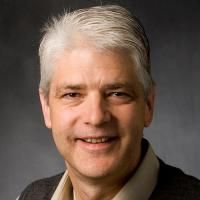Research in the fields of biosensors and bioinstrumentation utilizes recent advances in biochemistry, electronics, omics (genomics, epigenetics, proteomics), and physiology to develop novel diagnostic, therapeutic, and prosthetic devices.
Duke biosensor researchers engineer macro- and nano-scale devices that utilize biological components, such as antibodies or enzymes, to detect and quantify minute amounts of chemicals or investigate biological process in diverse systems and environments.
Duke bioinstrumentation researchers create and disseminate diverse health care technologies and know-how around the world, especially focusing on the developing world. The biosensors and bioinstrumentation research communities at Duke are supported and enhanced by the Fitzpatrick Institute for Photonics and the Duke Global Health Institute.













